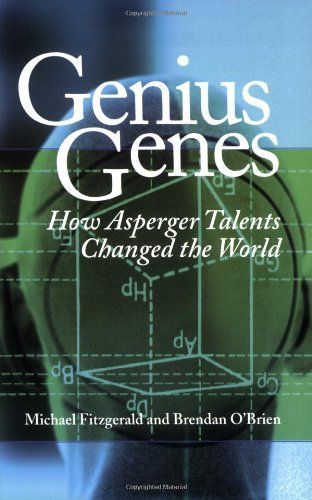
Genius Genes How Asperger Talents Changed the World
Genius Genes: How Asperger Talents Changed the World proposes that many famous historical figures had an autistic mind-style, and that this should color the way we approach autism today Arguing that highly creative people are largely “born and not made,” the authors of Genius Genes: How Asperger Talents Changed the World present case studies of the lives of 21 famous individuals, tying their personalities, talents and lifestyles to the major characteristics of Asperger Syndrome. Subjects range from the well-known to some more obscure, including political/military figures (Thomas Jefferson, Thomas 'Stonewall' Jackson, Bernard Law Montgomery and Charles de Gaulle), mathematicians (Archimedes, Charles Babbage, Paul Erdös, Norbert Wiener, David Hilbert, and Kurt Gödel), scientists (Isaac Newton, Charles Darwin, Albert Einstein, Nikola Tesla, Henry Cavendish and Gregor Mendel), writers (Gerard Manley Hopkins and H. G. Wells), plus maverick aviator Charles Lindbergh, psychologist John Broadus Watson and sexologist Alfred C. Kinsey.This book's chief importance lies in challenging – from a fresh perspective – an often negative perception of autism and Asperger Syndrome by demonstrates that many persons with autism have lived rich, complex and productive lives, and that their intelligence contributed hugely to shaping the world that we now know.